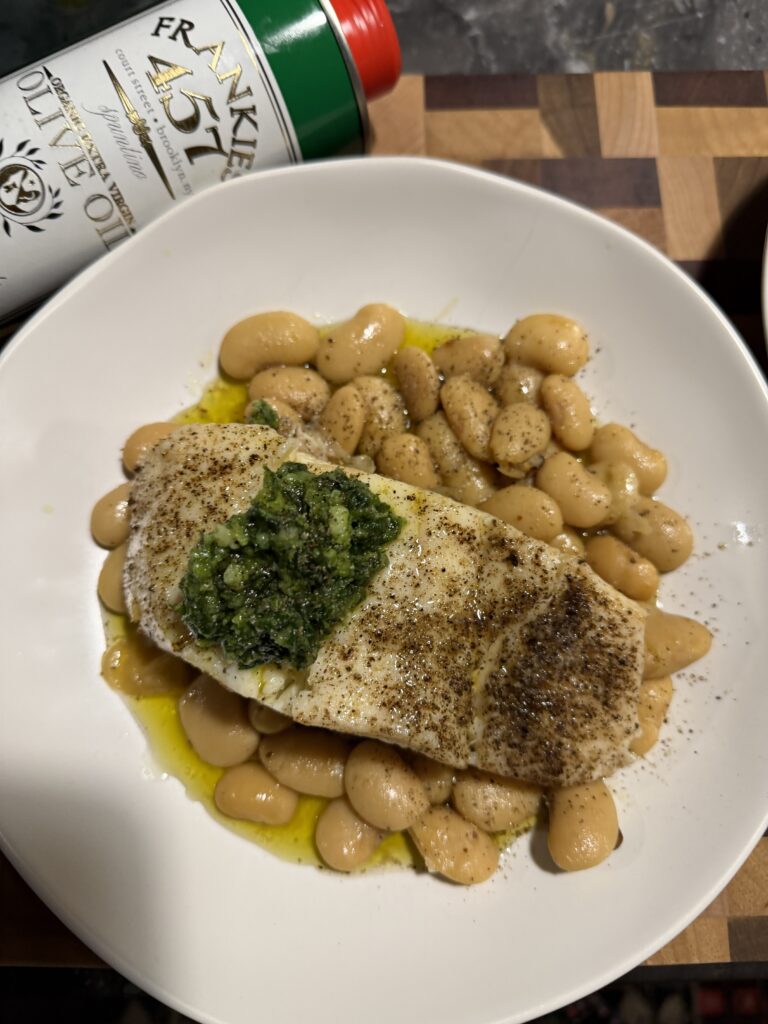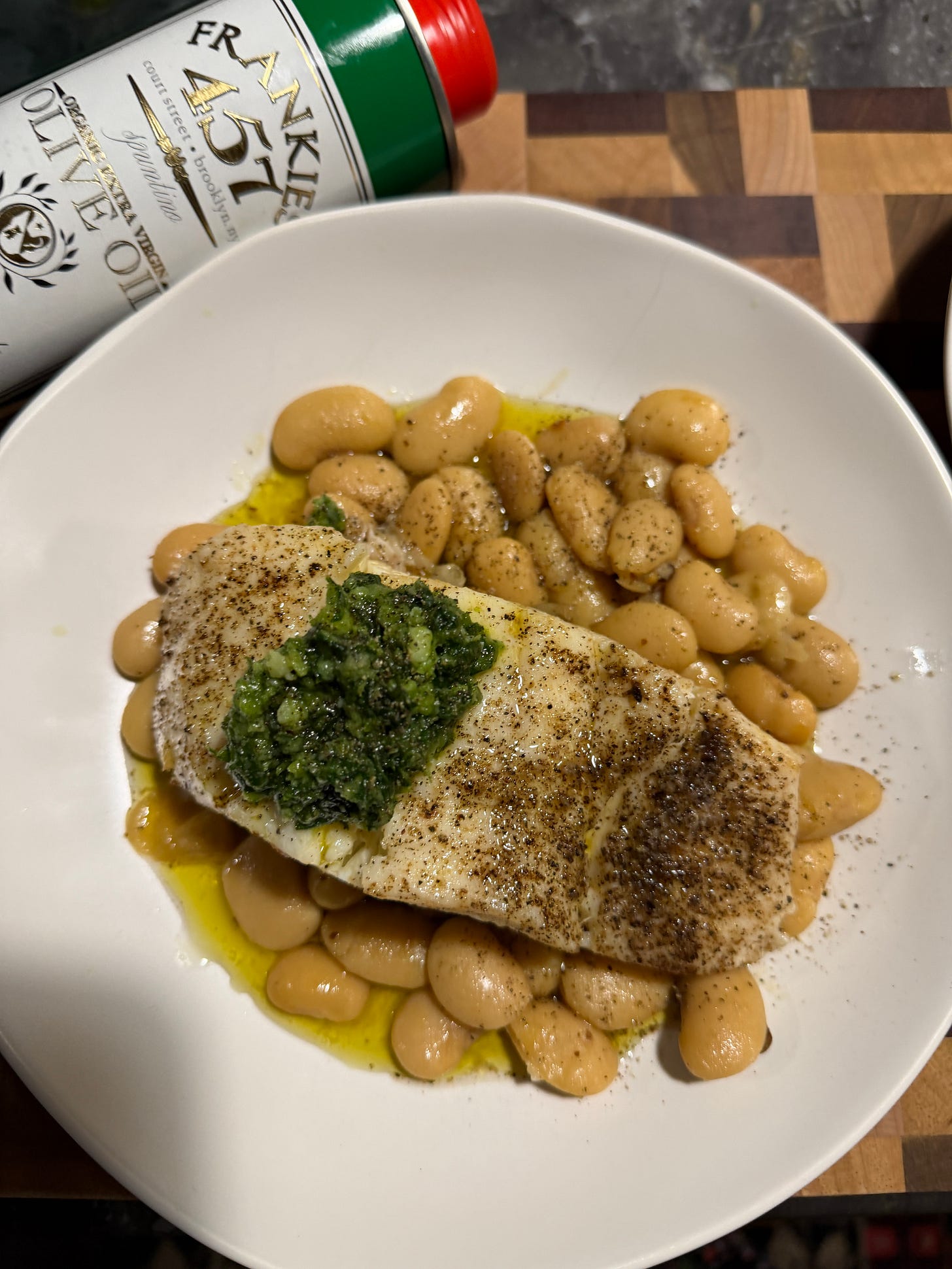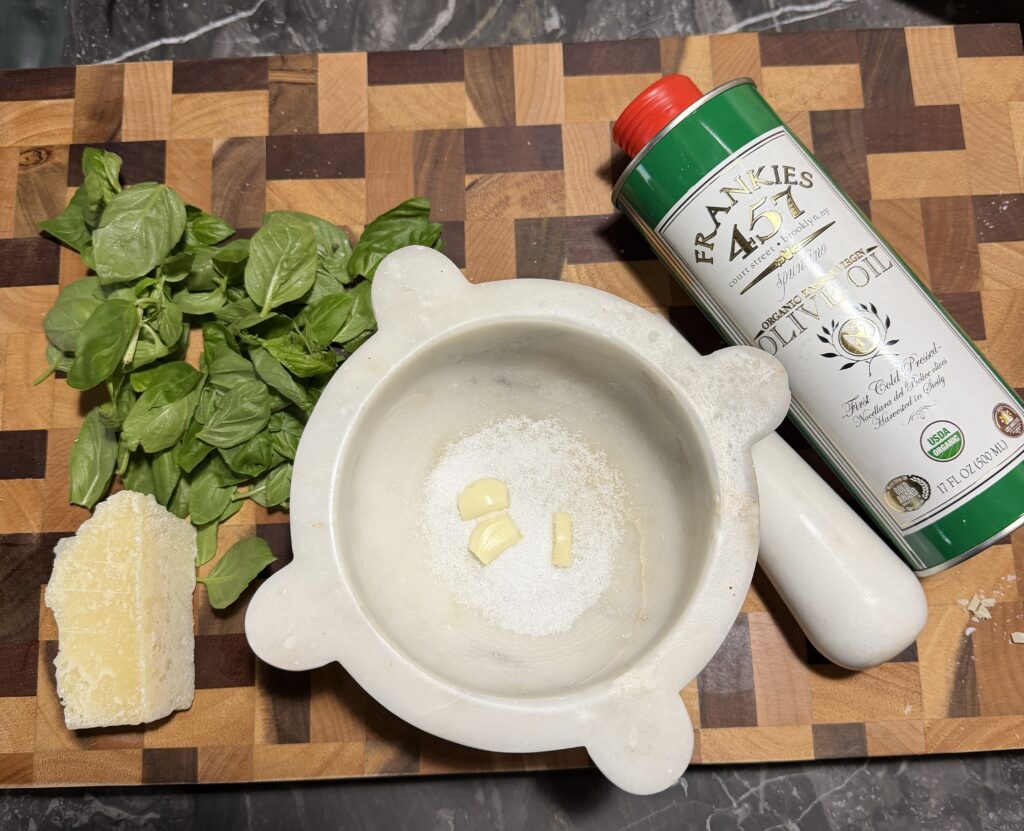Confit Halibut with Smoked Butter Beans and Pistou
How This Recipe Came to Be
Some recipes arrive quietly not planned or tested in a big kitchen, but dreamed up in motion. Born out of what you have and what you crave.
This one came to me somewhere between Austin and home. I had made a batch of Smoked Butter Beans, an Ottolenghi-inspired recipe that had been the hit of a recent get-together. They’re wonderful on a relish tray — smoky, silky, and just the right amount of heat.
When I arrived in Austin after a trip home to South Dakota, I stopped at the market craving fish, Dover Sole, specifically. But as luck (and grocery stores) would have it, they were out. I looked at the halibut and thought, what the heck.

On the drive home, I started building the dish in my head — a habit of anyone who’s cooked for as long as I have. I knew I had some prosciutto in the fridge, but that idea didn’t excite me. Then I remembered those smoky butter beans and started imagining how to marry those flavors.
When I pulled into the garage, I noticed my husband had moved my basil plant inside to protect it from an impending freeze. Seeing it sparked an idea: pistou — that beautiful French cousin of pesto, made simply with basil, garlic, Parmesan and olive oil (no nuts). I could already taste how its brightness would cut through the richness of the beans and fish.
Originally, I planned to roast the halibut, but as I opened the fridge and saw all that golden oil from the beans, a thought struck: Could I confit the halibut?
So I gave it a whirl.
The result? A dish that felt both comforting and luxurious — tender halibut infused with flavor, nestled into smoky butter beans, and finished with a bright spoonful of pistou. My husband and I both fell in love with it on that chilly night — one pan, one meal, and a happy accident that turned into something truly special.

A Little Culinary Context
Confit (pronounced con-FEE) comes from the French word confire, meaning “to preserve.” Traditionally, it’s a slow-cooking method in which an ingredient — often duck, garlic, or even tomatoes — is gently cooked in fat or oil until silky and tender. In this case, the halibut cooks slowly in the fragrant oil from the beans, giving it a melt-in-your-mouth texture that feels indulgent but not heavy.
Pistou (pronounced pee-STOO) is Provence’s answer to pesto — simpler, lighter, and all about the purity of basil. It’s made with fresh basil, garlic, olive oil, and salt. Sometimes there is cheese, I went for Parmesan. No nuts. Just a burst of herbaceous brightness that wakes up the plate.

Serving Notes
This dish truly is a one-dish wonder — cozy enough for a quiet night at home, elegant enough for a dinner party. Serve it with a glass of Texas Viognier or crisp sparkling wine, a hunk of warm bread, and someone you love sitting across from you.
It’s proof that the best recipes don’t always start with a plan. Sometimes, they start with a craving, a basil plant in the garage, and a little willingness to say, what the heck.
With grace, grit & gratitude,
xx, JeriLynne
Leave a Reply Cancel reply
Whether you’re looking to rekindle your love for hosting, learn how to pair wine with weeknight dinners, or simply bring more meaning to mealtime—this book was written with you in mind.